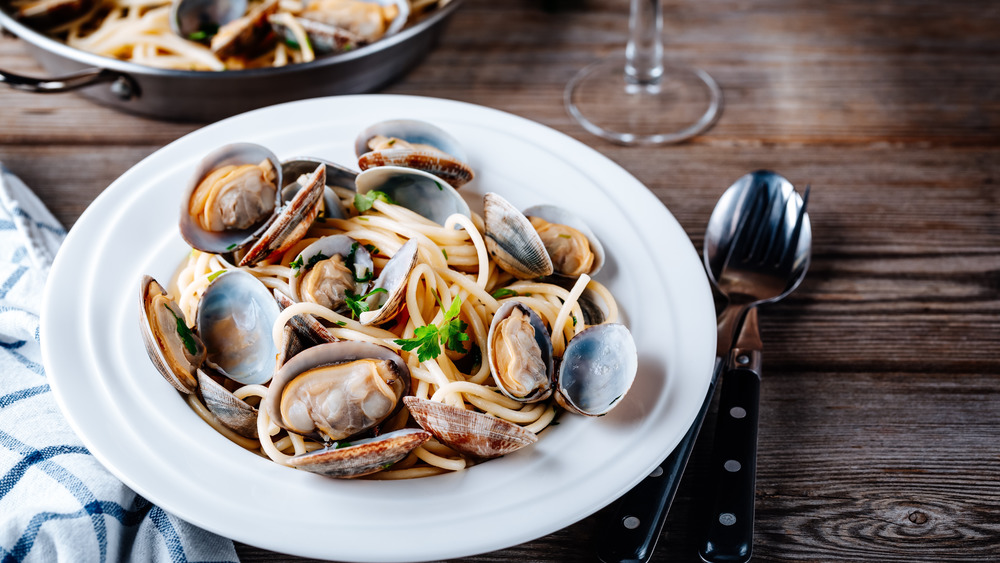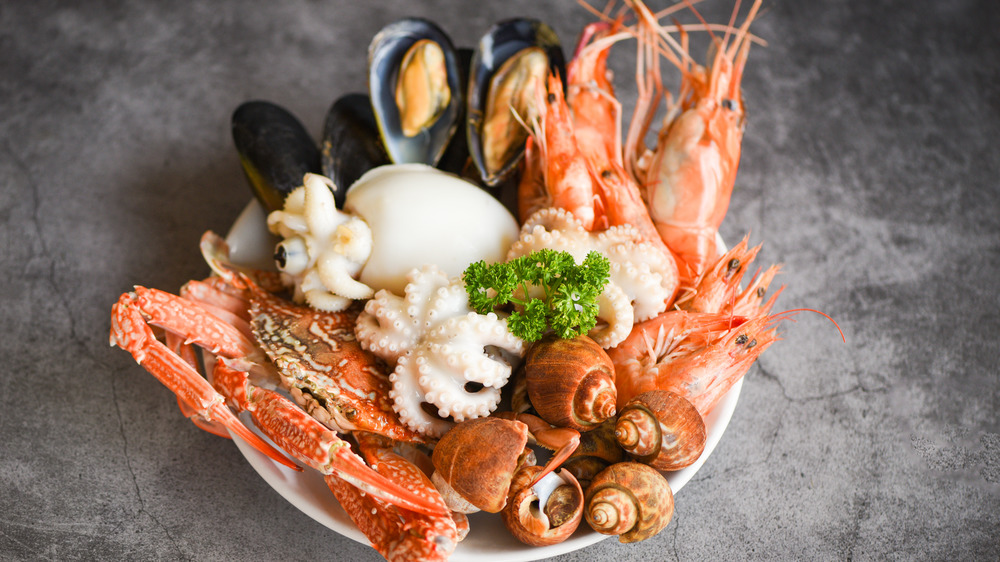Avoid These Shellfish If You're Following The Keto Diet
Dieting has a long history — so long, that it can be traced back to ancient Greece. According to The Atlantic, the word diet derives from the Greek word diaita, which focused not only on a healthy mind, but also a healthy body. Fast forward a few centuries, and the health and wellness markets are riddled with diet trends: the Mediterranean diet, the DASH diet, the Atkins diet, and most recently, the Ketogenic diet. Medical News Today explains that the Keto diet follows the principle of eating more healthy fats while lowering the amount of carbohydrates one eats (this helps the body burn fat as fuel).
Following the Keto diet means that folks have to be very careful about the foods they eat, as some foods, like yogurt, coleslaw, balsamic oil, and sun-dried tomatoes, all possess levels of hidden carbohydrates in them, per Eat This, Not That!. Another set of unsuspecting foods that possess carbs? Well, according to Healthline, certain types of shellfish include surprising levels of carbs (#gasp).
Steer clear of things like oysters and clams
For the most part, seafood is a safe bet when you're looking for a low-to-nonexistent source of carb-free meat, but there are certain types of shellfish that you'll need to steer clear of. Healthline reports that although things like crabs and shrimp are safe, you should be careful when it comes to some others — for instance, clams, mussels, and oysters.
The Paleo Diet cites how 100 grams of raw oysters, mussels, clams, whelk, abalone, and scallops contained high levels of carbohydrates. In addition to this, the blog cites some non-shellfish seafood like cooked octopus as something that people who are living a Keto lifestyle should eat with caution.
In addition to shrimp and crabs, The Paleo Diet also lists lobster and raw octopus as things that are low in carbs. Carb Manager explains that hidden carbs can be a huge hindrance to a successful Keto diet because if you aren't careful, you can easily go over the limit of 10 percent of your calories in net carbs per day.

